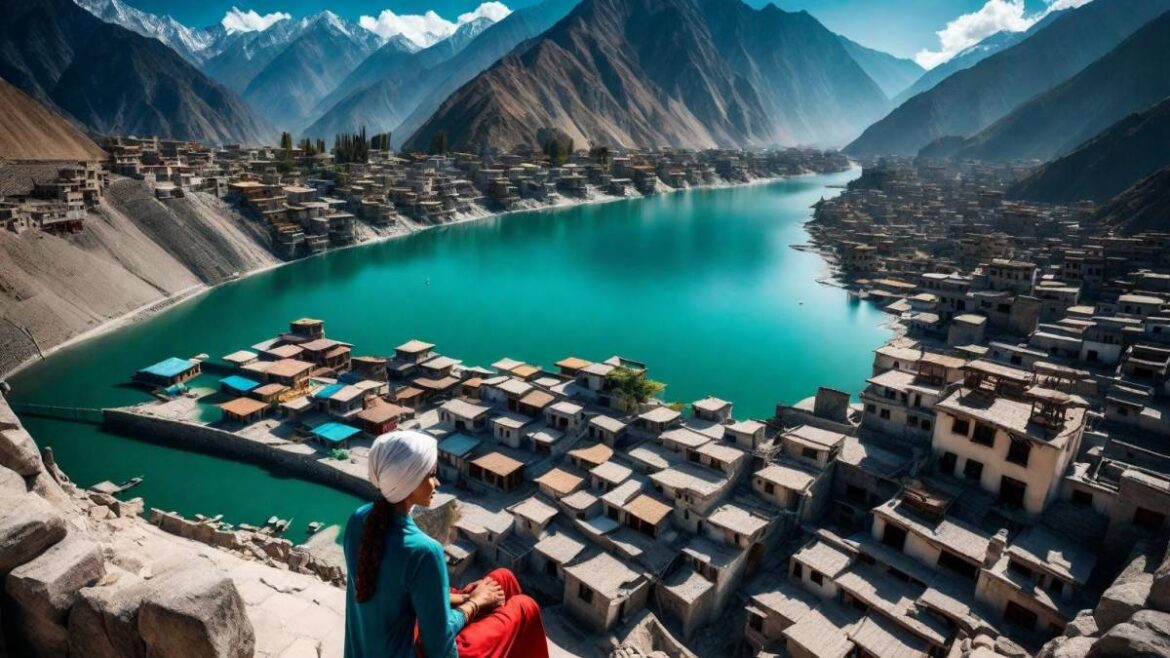ISLAMABAD: Gilgit-Baltistan is poised to become a global tourism hotspot, thanks to the efforts of the Green Tourism Company and the support of the Special Investment Facilitation Council (SIFC).
The Green Tourism Company has pledged to promote sustainable tourism in Gilgit-Baltistan. By developing world-class tourism points and investing in human capital development, the company aims to enhance the region’s appeal to both domestic and international travelers.
A key aspect of the Green Tourism Company’s initiative is to develop a skilled workforce in the tourism sector. By providing training and education to local residents, the company aims to ensure that the region’s tourism industry is equipped with the necessary expertise to deliver exceptional experiences.
In addition to human capital development, the Green Tourism Company is also committed to providing basic facilities to enhance the visitor experience. This includes infrastructure development, accommodation options, and amenities that cater to the needs of tourists.
The development of sustainable tourism in Gilgit-Baltistan has the potential to significantly impact the region’s economy. By attracting more tourists, the initiative can generate revenue, create jobs, and stimulate local businesses.
Sustainable tourism is not only about economic benefits but also about preserving the region’s cultural heritage. The Green Tourism Company’s initiatives will promote responsible tourism practices that respect local customs, traditions, and heritage sites.
Gilgit-Baltistan’s efforts to promote sustainable tourism can contribute to the global tourism industry. By showcasing the region’s unique attractions and offering exceptional experiences, the initiative can attract travelers from around the world.
The Green Tourism Company’s commitment to sustainable tourism in Gilgit-Baltistan has the potential to transform the region into a global tourism destination. By developing a skilled workforce, providing basic facilities, and promoting responsible tourism practices, the initiative can contribute to both economic growth and cultural preservation.
Meanwhile, The Special Investment Facilitation Council (SIFC) is supporting Green Tourism Company’s efforts to enhance tourism facilities in Gilgit-Baltistan, often referred to as Pakistan’s tourism capital.
Green Tourism Private Limited has established four-star and five-star city hotels in Naltar, along with hunting lodges. These developments are part of a broader initiative to create world-class tourist destinations in the region.
The company’s focus extends beyond infrastructure development to generating employment opportunities and business ventures for local residents. By fostering a skilled workforce in the tourism sector, the project aims to elevate Gilgit-Baltistan’s appeal to both domestic and international visitors.
Naltar, situated in the heart of Gilgit-Baltistan, has been chosen as a key location for these new amenities, offering tourists premium accommodations and memorable experiences.
These initiatives, facilitated by SIFC, are expected to not only promote tourism but also attract foreign direct investment. The collaboration between SIFC and Green Tourism Company is anticipated to contribute to the country’s overall economic activities, with a particular emphasis on the tourism sector.
Moreover, in a move aimed at streamlining mountaineering operations and promoting sustainable tourism, the Gilgit-Baltistan government has announced significant changes to permit fees and regulations for climbing K2, the world’s second-highest peak.
According to a notification issued by the Gilgit-Baltistan Tourism, Sports, Culture, Archaeology, and Museum Department, the permit fee for foreign climbers to scale K2 has been set at $5,000 for the summer season (April-September), $2,500 for autumn (October-November), and $1,500 for the winter season (December-March).
Pakistani climbers will pay Rs100,000 for the summer season, Rs50,000 for autumn, and Rs30,000 for winter.
The notification also outlines several important regulations, including: Climbers can only scale one peak per permit. Groups are limited to a maximum of 20 members.High-altitude porters must be insured for up to Rs2 million, while low-altitude porters will be insured for up to Rs 1 million.Environmental fees will be deposited into the GB Adventure Tourism Account. All expedition briefings and debriefings will be conducted at the tourism offices in Gilgit-Baltistan
The changes are effective immediately, and climbers are advised to contact the Gilgit-Baltistan Council for further information. The revised fees and regulations are expected to boost revenue for the region and promote responsible mountaineering practices.


